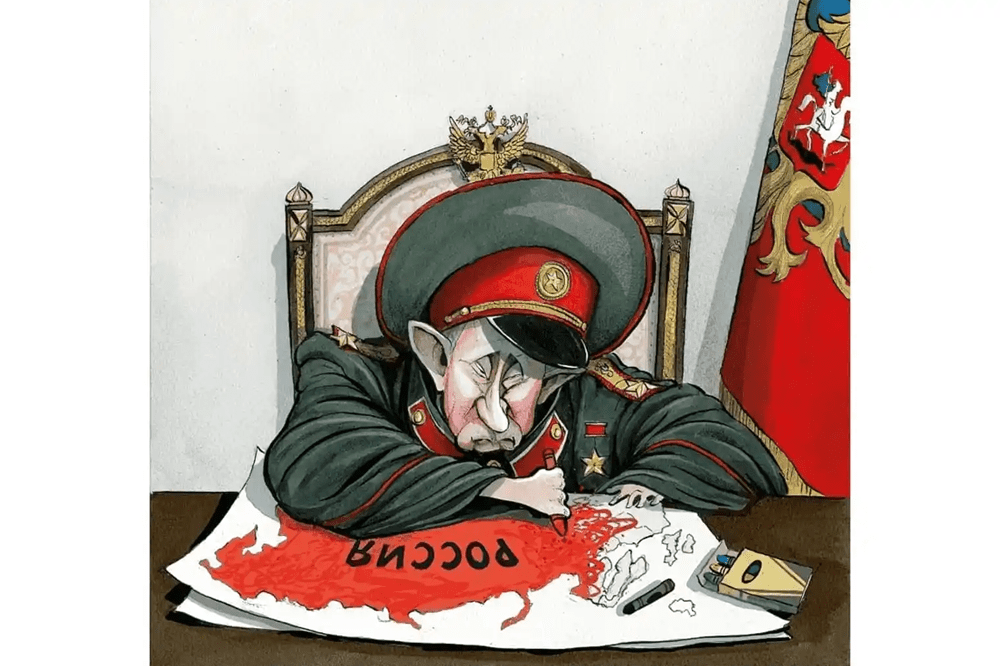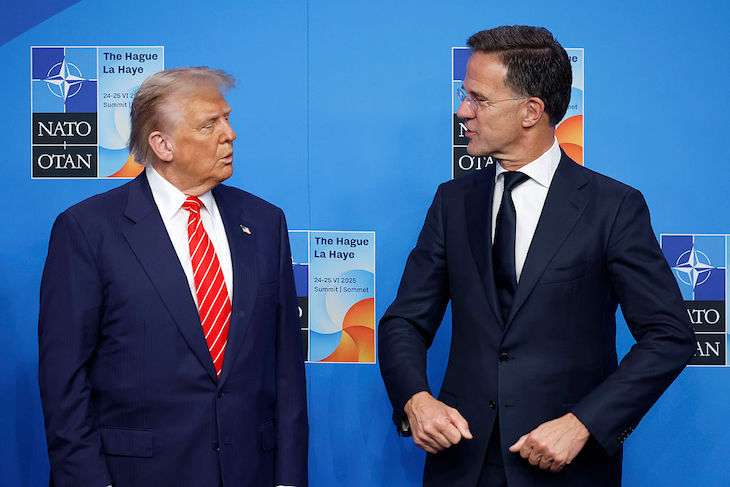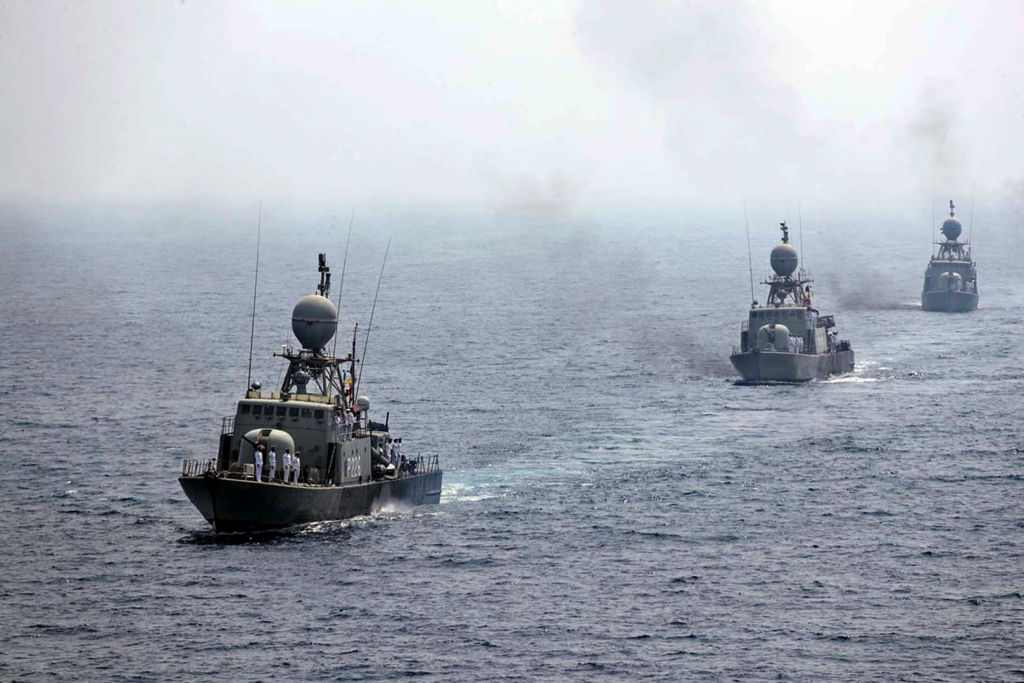The war in Ukraine changed fundamentally after Vladimir Putin failed to capture Kyiv and decapitate the regime there a year ago. His army settled into Russia’s traditional way of war: a slow, brutal, relentless slugfest. That strategy necessarily expends countless Russian lives. Human-wave attacks rely on untrained troops, dragooned from prisons or off the streets. The idea is to use these expendable men to weaken Ukraine’s front-line defenses and then follow them with more sophisticated attacks by Russia’s battle-hardened troops.
This strategy has cost countless lives on both sides while producing only minor Russian gains. The big gains came immediately after the surprise invasion a year ago. Since then, Russia has only lost ground, sometimes gradually, sometimes swiftly, as when Ukraine retook Kharkov oblast in the north.
The losses have been horrendous. Russia has deliberately bombed civilian infrastructure: electric and water supplies, homes, schools, and hospitals. They have kidnapped Ukrainian children and executed captured civilians. It is not an enigma. It is a war crime, wrapped inside Russia’s conventional way of war.
Much as Ukraine has suffered, they have not lost hope. Destroying that was at the heart of Russia’s strategy, and it has failed. What Ukraine has gained, for all its losses, is a strong sense of its own nationhood and its right to determine its sovereign destiny.
Russia continues to launch frontal assaults and bomb civilian infrastructure because they have few other military options, aside from nuclear escalation, which they have repeatedly threatened. Their military is micromanaged by an isolated, ill-informed, and amateurish politician, who sits at the end of long tables, fearful for his regime and his life.
Putin is now trapped by his own stupid gamble, and he must know it. He doesn’t have good alternatives to his current military strategy of doubling down, mobilizing more troops, and launching another major offensive. That offensive poses major risks. The military risk is that his army could collapse after failure. The political risk is that the public will resist mobilization, especially in the important cities of Moscow and St. Petersburg. An even bigger risk is his ouster by Kremlin insiders. Those insiders face risks of their own, mostly windows in tall buildings.
Risky as it is for Russia to double down, it is really the Kremlin’s only path to victory. And that would, at most, be a partial victory, now that they have buried so many experienced troops and depleted their arsenal of precision weapons. Russia is left with a vast arsenal of old, inaccurate but deadly weapons, warehouses full of ammunition, an army filled with little more than “meat,” logistics that depend on vulnerable rail transport that stops far from the front lines, and a top-down command structure that cannot adapt to changing battlefield conditions and cannot be changed quickly during wartime.
Doing the same thing with more intensity and desperation may be Putin’s only option. But it won’t work.
It won’t recapture new territory or hold the lands he captured in February and March last year. It won’t break the will of the Ukrainian people, who have been forged into a coherent, fighting nation by the unprovoked Russian assault and galvanized by Volodymyr Zelensky’s brilliant leadership.
It won’t cut off Ukraine from access to the Black Sea, as Putin hoped last year. It won’t allow Russia to move beyond Ukraine and incorporate the Russian population in eastern Moldova (Transnistria), just west of Odessa.
It won’t break NATO, as Putin initially hoped and perhaps still does. Indeed, Russia’s unprovoked war of aggression has increased the alliance’s unity, given it new purpose, and added to its future membership, once Erdoğan’s opposition to Sweden and Finland is overcome. The prospect of new NATO members on St. Petersburg’s doorstep is a strategic catastrophe for the Kremlin.
Most of all, the renewed offensive won’t produce Russian victory. Putin’s only real hope now is a war of attrition. The goal is to wear down NATO’s long-term support for Ukraine, either because of financial costs or the risk of escalation. Putin’s calculation must be that Kyiv would be forced to cede territory in a compromise settlement if Western support ebbs. He could then claim victory for Mother Russia and present himself as its standard bearer.
Putin’s dream world can’t be ruled out, but it is extremely unlikely. No Ukrainian regime could survive if it permanently withdrew from sovereign territory. It has fought too hard and paid too much. The most any Ukrainian leaders could concede would be a ceasefire, where low-level fighting would continue as it did after Russia’s 2014 invasion. Both sides would immediately begin preparing for another full-scale war. As part of that deal, Western leaders might propose “internationalizing” Crimea, leaving its ultimate sovereignty in limbo. That, too, would be impossible for Kyiv to accept as a long-term solution. Russia would also find it impossible if it jeopardized their hold on Sevastopol, where their Black Sea fleet is anchored.
There’s one more enormous obstacle to any compromise. The West won’t let Russia walk away from its horrific catalog of war crimes, which implicate hundreds of senior military and political leaders. But Russia will never give up those criminals unless there is a complete change of regime, and perhaps not even then. Without trials in The Hague and an elimination of Moscow’s virulent nationalist leadership, Russia will continue to be treated as a pariah, its economy still subject to extensive sanctions.
There are two problems, then, with a compromise peace. The first is gaining acceptance from Kyiv and Moscow. The second is making it last. A compromise that leaves Russia in control of Ukrainian territory would be inherently unstable. It would pose a continuing military threat and prevent Ukraine from rebuilding its economy and society along Western lines.
Instability like that is what French general Ferdinand Foch meant when he offered a dim assessment of the settlement ending the Great War. “This is not peace,” he said of the Versailles Treaty. “It is an armistice for 20 years.” He was off by only a month. A similar forecast for Ukraine would likely be off by a decade or more.
That’s why Moscow is beginning its new assault, hoping to win on the battlefield. (They won’t.) That’s why Kyiv fights on, at great cost. That’s why Ukraine’s allies, meeting monthly at Germany’s Ramstein Air Base, are ramping up their supplies of heavy weapons, hoping to avoid a major escalation by doing it cautiously. Where the allies are still split is the goal of these weapons. Are they meant mostly to prevent Russian victory, as Paris, Berlin, and perhaps Washington want? Or are they meant to secure Ukrainian victory, as London, Warsaw, and the Baltics want?
The crunch is not likely to come this spring unless Russia’s major offensive succeeds unexpectedly. It is more likely to come in the summer when Ukraine tries to retake Crimea, first by cutting off its land bridge to Russia (in Zaporizhzhia oblast), then by missile attacks and, possibly, a risky land assault. Russia is already dug in for the coming battle.
No one expected another major war like this in Europe. Russia’s invasion ended the fantasy of permanent peace on the continent and caught NATO flatfooted. Now, both the Ukrainians and Russians have fought too hard, spent too much, and lost too many lives to seek compromise. If they do strike a deal, it is likely to be only a ceasefire, and an unstable one at that. They are far more likely to fight on until one side achieves victory.

























